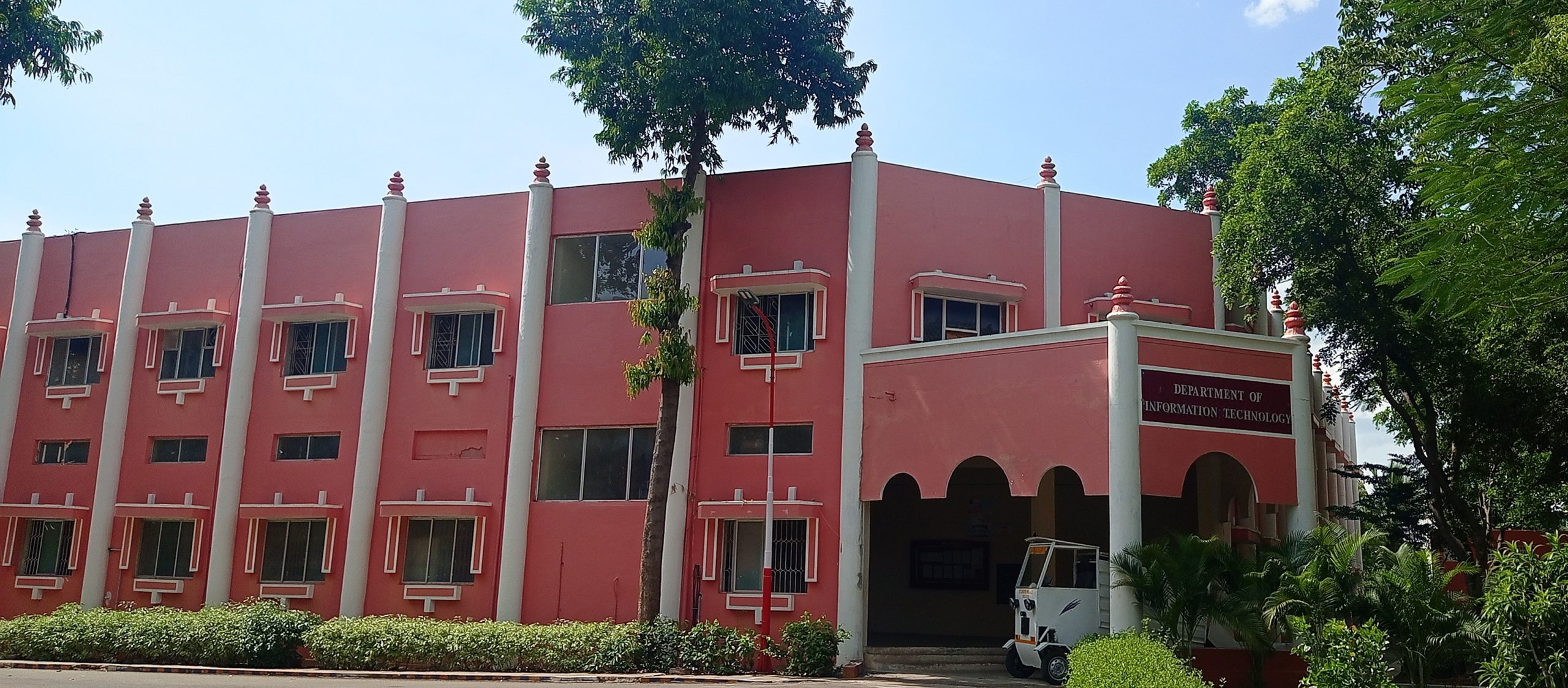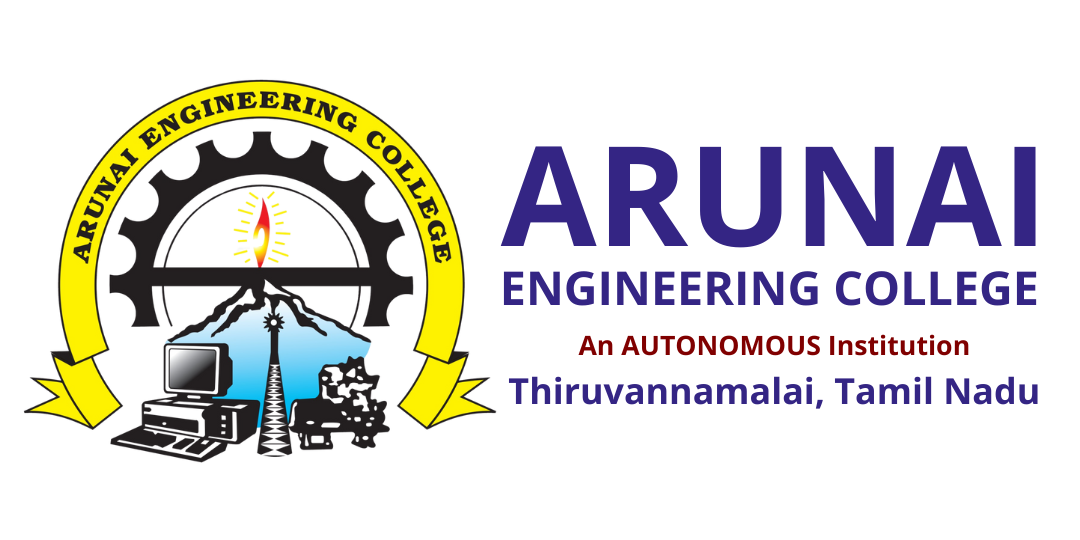Department > B.TECH - Information Technology
B.TECH - Information Technology

Introduction
Objective
To Motivate the Graduates to be successful in the professional practice of Engineering or other related fields. They will obtain employment appropriate to their background, interests, and education and will advance in their career field.
Graduates will engage in life-long learning; e.g., advanced education/degrees, professional development activities, and/or other career-appropriate options.
Graduates who are employed within engineering fields will demonstrate technical competence, such as identifying, formulating, analyzing, and creating engineering solutions using appropriate current engineering techniques, skills, and tools.
As appropriate to their professional or educational positions, graduates will
Effectively communicate technical information in multiple formats,
Function effectively on teams,
Develop and apply electrical/computer engineering solutions within global, societal, and environmental contexts.
Vision
To develop the department as a center of excellence in Information technology and to make the students blossom in to meritorious and self disciplined engineers by hard work, so that they are useful to society at large, to which they are obliged.
Mission
Department of Information technology strives to develop the technical, managerial and interpersonal skills of a student to perform well in any it set up in tune with latest technology.
Quality Policy
Arunai engineering college strives to bring out and nurture the talents and skills of youth with quality technical education, motivate them to be self-disciplined and develop their competence to face the challenges of globalization. By
Providing excellent Infrastructure and conductive learning environment.
Complying with all the requirements with total commitment.
Continually improving the effectiveness of the Quality Management System (QMS)
Responding to the changes both in technology and application and associating with leading industries and research Institutions.
Programme's PEO's, PSO's and PO's
Program Educational Objectives (PEO)
PEO1 : To ensure graduates will be proficient in utilizing the fundamental knowledge of basic sciences, mathematics and Information Technology for the applications relevant to various streams of Engineering and Technology
PEO2 : To enrich graduates with the core competencies necessary for applying knowledge of computers and telecommunications equipment to store, retrieve, transmit, manipulate and analyze data in the context of business enterprise.
PEO3 : To enable graduates to think logically, pursue lifelong learning and will have the capacity to understand technical issues related to computing systems and to design optimal solutions.
PEO4 : To enable graduates to develop hardware and software systems by understanding the importance of social, business and environmental needs in the human context
PEO5 : To enable graduates to gain employment in organizations and establish themselves as professionals by applying their technical skills to solve real world problems and meet the diversified needs of industry, academia and research
Program Outcomes (POs)
PO1 – Engineering Knowledge: Apply the knowledge of mathematics, science, engineering fundamentals and an engineering specialization to the solution of complex engineering problems.
PO2 – Problem Analysis: Identify, formulate, review research literature, and analyze complex engineering problems reaching substantiated conclusions using first principles of mathematics, natural sciences, and engineering sciences.
PO3 – Design / Development of solutions: Design solutions for complex engineering problems and design system components or processes that meet the specified needs with appropriate consideration for the public health and safety, and the cultural, societal, and environmental considerations.
PO4 – Conduct investigations of complex problems: Use research-based knowledge and research methods including design of experiments, analysis and interpretation of data, and synthesis of the information to provide valid conclusions.
PO5 – Modern tool usage: Create, select, and apply appropriate techniques, resources, and modern engineering and IT tools including prediction and modeling to complex engineering activities with an understanding of the limitations.
PO6 – The engineer and society: Apply reasoning informed by the contextual knowledge to assess societal, health, safety, legal and cultural issues and the consequent responsibilities relevant to the professional engineering practice.
PO7 – Environment and sustainability: Understand the impact of the professional engineering solutions in societal and environmental contexts, and demonstrate the knowledge of, and need for sustainable development.
PO8 – Ethics: Apply ethical principles and commit to professional ethics and responsibilities and norms of the engineering practice.
PO9 – Individual and team work: Function effectively as an individual and as a member or leader in diverse teams, and in multidisciplinary settings.
PO10 – Communication: Communicate effectively on complex engineering activities with the engineering community and with society at large, such as, being able to comprehend and write effective reports and design documentation, make effective presentations, and give and receive clear instructions.
PO11 – Project management and finance: Demonstrate knowledge and understanding of the engineering management principles and apply these to one’s own work, as a member and leader in a team, to manage projects and in multidisciplinary environments.
PO12 – Life-long learning: Recognize the need for and have the preparation and ability to engage in independent and lifelong learning in the broadest context of technological change.
Program Specific Outcomes (PSOs)
PSO1 : To create, select, and apply appropriate techniques, resources, modern engineering and IT tools including prediction and modelling to complex engineering activities with an understanding of the limitations
PSO2 : To manage complex IT projects with consideration of the human, financial, ethical and environmental factors and an understanding of risk management processes, and operational and policy implications.

